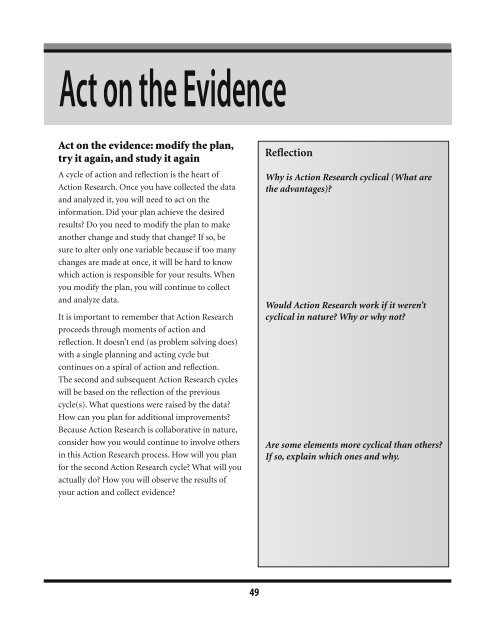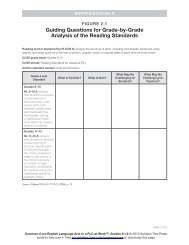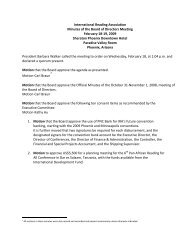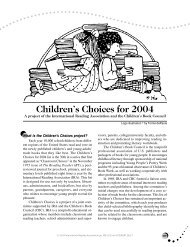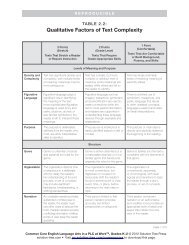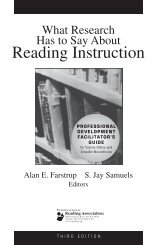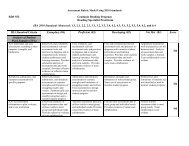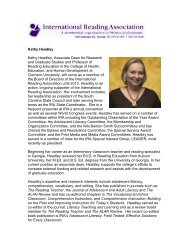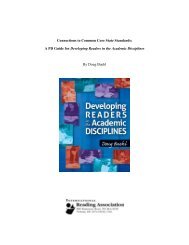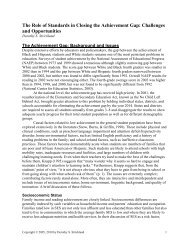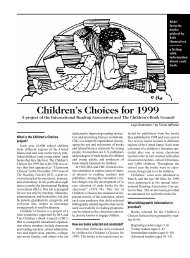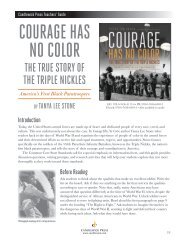A Practical Guide to Action Research for Literacy Educators
A Practical Guide to Action Research for Literacy Educators
A Practical Guide to Action Research for Literacy Educators
Create successful ePaper yourself
Turn your PDF publications into a flip-book with our unique Google optimized e-Paper software.
Act on the Evidence<br />
Act on the evidence: modify the plan,<br />
try it again, and study it again<br />
A cycle of action and reflection is the heart of<br />
<strong>Action</strong> <strong>Research</strong>. Once you have collected the data<br />
and analyzed it, you will need <strong>to</strong> act on the<br />
in<strong>for</strong>mation. Did your plan achieve the desired<br />
results? Do you need <strong>to</strong> modify the plan <strong>to</strong> make<br />
another change and study that change? If so, be<br />
sure <strong>to</strong> alter only one variable because if <strong>to</strong>o many<br />
changes are made at once, it will be hard <strong>to</strong> know<br />
which action is responsible <strong>for</strong> your results. When<br />
you modify the plan, you will continue <strong>to</strong> collect<br />
and analyze data.<br />
It is important <strong>to</strong> remember that <strong>Action</strong> <strong>Research</strong><br />
proceeds through moments of action and<br />
reflection. It doesn’t end (as problem solving does)<br />
with a single planning and acting cycle but<br />
continues on a spiral of action and reflection.<br />
The second and subsequent <strong>Action</strong> <strong>Research</strong> cycles<br />
will be based on the reflection of the previous<br />
cycle(s). What questions were raised by the data?<br />
How can you plan <strong>for</strong> additional improvements?<br />
Because <strong>Action</strong> <strong>Research</strong> is collaborative in nature,<br />
consider how you would continue <strong>to</strong> involve others<br />
in this <strong>Action</strong> <strong>Research</strong> process. How will you plan<br />
<strong>for</strong> the second <strong>Action</strong> <strong>Research</strong> cycle? What will you<br />
actually do? How you will observe the results of<br />
your action and collect evidence?<br />
Reflection<br />
Why is <strong>Action</strong> <strong>Research</strong> cyclical (What are<br />
the advantages)?<br />
Would <strong>Action</strong> <strong>Research</strong> work if it weren’t<br />
cyclical in nature? Why or why not?<br />
Are some elements more cyclical than others?<br />
If so, explain which ones and why.<br />
49


